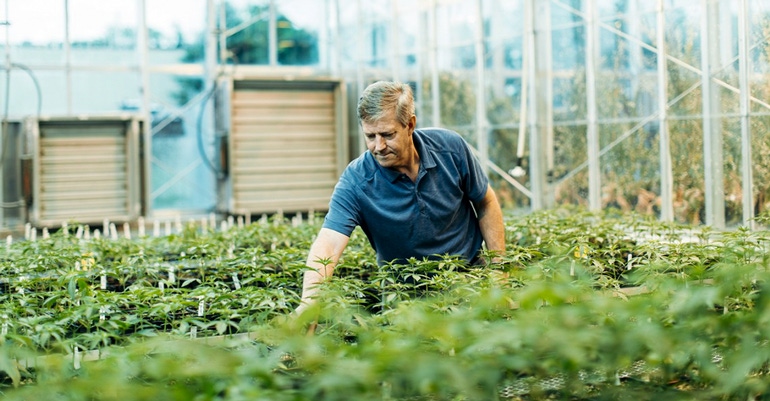August 14, 2019

Cornell University will house the nation’s only industrial hemp germplasm repository — a seed bank — co-located at Cornell AgriTech in Geneva.
Sen. Charles Schumer, D-N.Y., helped secure $500,000 in federal funding for the USDA’s Agriculture Research Service.
“I fought tooth-and-nail to secure this federal funding while also working to strip back the burdensome federal restrictions that held our farmers and growers back from growing industrial hemp as an agriculture commodity because I knew the potential this crop had to transform the upstate New York economy,” Schumer says.
At the new repository, USDA-ARS will maintain the germplasm and collaborate with Cornell University scientists, where they already partner on research for grape, apple, cherry, tomato and Brassica crops.
Larry Smart, professor of horticulture at Cornell, says the hemp repository is a desperately needed resource. The seed bank will enable researchers to identify pest-resistant and disease-resistant genes, giving them the tools to breed new varieties. Getting to the root of crop health is essential for providing better resources to New York hemp growers, Smart says.
Beyond New York, the new seed bank will benefit hemp growers across the nation. Christine Smart, professor of plant pathology, says these resources will let researchers breed hemp varieties that will grow well under different conditions.
She says cultivars developed at Cornell could be ready for growers within five years.
The market for industrial hemp has already skyrocketed in the U.S. According to Cannabis Financial Network, the hemp industry was projected to grow from $400 million in 2016 to $2.1 billion in 2020.
“The more germplasm that scientists have access to, the better the chances are that we’re going to breed plants that are useful, whether it’s for managing pests or specific climates,” Larry Smart says.
“The hemp seed bank and the research potential it gives our Cornell and USDA-ARS scientists will be vital resources for New York state farmers,” says Kathryn J. Boor, dean of Cornell’s College of Agriculture and Life Sciences.
Source: Cornell University, which is solely responsible for the information provided and is wholly owned by the source. Informa Business Media and all its subsidiaries are not responsible for any of the content contained in this information asset.
You May Also Like




